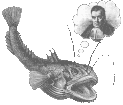UW Aquatic & Fishery Sciences Quantitative Seminar
Vladimir Minin
UW Statistics
A Bayesian approach to testing independent/separate origin hypotheses in evolutionary biology
Abstract
Estimating the number of times a discrete evolutionary trait changed its state is one of the fundamental questions in evolutionary developmental biology. Often, researchers are interested in testing an independent or separate origin hypothesis that asserts that the number of changes of a certain type exceeds a predefined threshold. For example, we may be interested in testing whether a complex organ was lost and then regained during evolution. Testing such a hypothesis in a formal statistical framework requires a model of trait evolution and a phylogenetic tree along which the evolutionary trait evolves. We use a fairly unrealistic, but mathematically and computationally convenient, Markov model of trait evolution, parameterized in terms of rates at which the trait changes its state. Next, we assume that the phylogenetic tree of organisms under study can be inferred using molecular data. However, such estimation remains imprecise and the resulting phylogenetic uncertainty must be accounted for when testing the independent/separate origin hypothesis. Both, the phylogenetic tree and rates of the Markov evolutionary model are nuisance parameters for our purposes. We propose to test the independent origin hypothesis in a Bayesian framework, because the Bayesian paradigm naturally allows for integration over nuisance parameters. We demonstrate how to construct and to calculate a Bayes factor to perform the desired test. We evaluate our test via simulations and apply the developed method to study evolution of a compound eye in cylindroleberidid ostracods. We also address sensitivity to prior specification -- a potential Achilles' heel of any Bayesian analysis.

